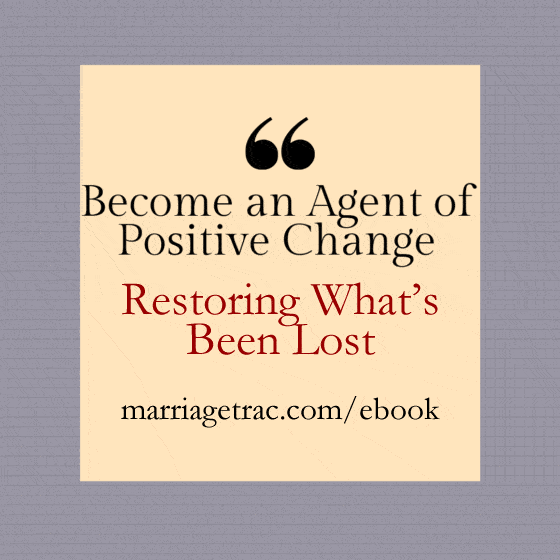Silence about pornography addiction within the church is prevalent. Too often the one place that should be a safe haven for you isn’t. After all, who wants to tell other women their marriage is in crisis and their husband watches porn? Not only are you dealing with your husband’s guilt and shame, but you are suffering with your own.
After more than thirty years of leading couples’ small groups and serving in ministry, I’ve had one, and only one, woman ever brave enough to ask, “Can we grab a cup of coffee? I need help and prayer for my husband’s sexual sin.” That means hundreds of other women are suffering in silence. I deeply grieve for these marriages and hope and pray more and more wives will step forward and break the silence. But too often women don’t—for one important reason: shame. Many of us do not recognize the difference between shame and guilt.
Author Brené Brown, a leading researcher on shame, provides clarity on how to differentiate one from the other.
Based on my research and the research of other shame researchers, I believe there is a profound difference between shame and guilt. I believe that guilt is adaptive and helpful—it’s holding something we’ve done or failed to do up against our values and feeling psychological discomfort. I define shame as the intensely painful feeling or experience of believing that we are flawed and therefore unworthy of love and belonging—something we’ve experienced, done, or failed to do makes us unworthy of connection. (1)
Contemplate this truth for a moment; with guilt you carry his problem when it’s not yours to carry. This is false guilt. False guilt has nothing to do with accuracy and reality. In reality, you did nothing to violate your own values; he violated the values of your marriage and family. You could not step in to protect him or stop him. Additionally, a sense of shame surfaces from a deep dark place that is not of God. God never tells his children they are unworthy of love or belonging. Shame is a voice that condemns and attempts to divert us from knowing God’s boundless love.
A frequent question I receive from Christian wives through email at Growthtrac Ministries is, “Is porn adultery?” My response, “Unequivocally, YES!” And, this response does not come from my own perspective, it is biblical and found in Matthew 5:28 – But I tell you that anyone who looks at a woman lustfully has already committed adultery with her in his heart (NIV).
What Are My Next Steps in Tackling His Porn Addiction?
Step 1: Move Toward Genuine Courage
Set aside a quiet time to sit and talk at the kitchen table without distraction. Be direct in letting your husband know you are aware of the pornography and will no longer accept this within the walls of your home. This is an “us” issue, not a “his” issue, so remember that you are a team. You are fighting on the same side to battle this addiction, and together you will find a way to get the help you both need. You are not each other’s enemy—porn is the enemy you are fighting. Express your experience with feelings of rage, betrayal, lost trust, deep woundedness, and pain since your discovery. Then stop talking. SERIOUSLY, stop talking and listen.
Step 2: Watch, Listen, and Pray
In your silence, you will receive the gift of an astonishing glimpse into the heart of your husband and his relationship with God. You will clearly see one of two things: hardness of heart or a genuinely repentant heart. A hardened heart in your husband will take guilt and shame and lay it at your feet to deal with. He will tell you the addiction is your fault. He will tell you it’s nothing and that all men do it. He will deny he has a problem. He will tell you he deserves porn to “de-stress.” He will make promises to stop, with no intention of keeping them. Addiction tells lies to everyone it comes in contact with—including the person who is addicted.
Step 3: Become an Agent of Positive Change
The first option is to stay and accept the worldview of “all men do porn,” bury the feelings of betrayal, and pretend nothing is wrong. The second option is to acknowledge the reality of your husband’s journey with porn, his hardened heart, and how the addiction immensely affects you, your marriage, and your children.
You’ll want to clearly state your expectation and boundary (what is okay or not okay for you), as well as consequences and a timeline. Boundaries are not an ultimatum.
Step 4: Choose Community and Connection
At numerous times throughout this healing process, you will need to seek God’s strength and wisdom to stay responsible to yourself and your children. You will also need strength, wisdom, and guidance from your church family, pastor, or a Christian counselor. Even though your husband’s addiction is not your fault, you still bear some of the consequences of his sin.
Healing does not take place in isolation
Way too often a wife’s internal dialogue is hidden; no one can know. This dialogue is exactly where Satan wishes to keep you and your husband—in a place of hiding, which is a tactic humans have used since the beginning of time.
Step 5 : Seek Professional Help for Yourself
Many couples, from a place of fear, feel the marriage requires saving first. Not true. He will need his own counselor who specializes in porn addiction and you will need a separate counselor for yourself.
You may support him in searching out the information, but you are not responsible for making the calls and setting up appointments. Let go, this is his responsibility.
There are parts of yourself you will need to examine with your counselor. When I’ve recommended this process to women friends, acquaintances, and clients, I expect pushback and anger. After all, many believe this is his problem, not theirs. The hardest aspect of healing for betrayed spouses is the realization that all aspects of recovery are not his responsibility. Without your own therapy, the journey toward personal healing and wholeness is arduous. Clearly, you were not perfectly healthy prior to knowing about his porn addiction. You will need to delve into your own places of emotional wellness, unfulfilled needs, and dreams before the betrayal.
Step 6: Be Patient for the Results
Give healing a chance. If you consider yourself an impatient person, plan for the patience ride of your life. Not only will you need patience for your husband, but you will need it for yourself. Remember, your husband is unraveling years—possibly decades—of assault on his brain, as well as masses of emotional denial. The journey toward wholeness will take more time than you or he will expect.
Granted, the steps suggested in this article are not comprehensive, nor do they cover all situations. I encourage you to check out the stories of other Christian wives and further insight and recommendations found in Sheri Mueller’s new eBook, Restoring What’s Been Lost: Victory Over Porn Addiction.
Reference: 1 Brené Brown, Shame v. Guilt, January 14, 2013





 Sheri Mueller is an LCPC who earned her M.A. in Professional Counseling from Olivet Nazarene University. A certified facilitator and trainer for PREPARE/ENRICH, Sheri has worked for more than 15 years to help individuals, premarital couples, and married couples build and maintain healthy relationships. An Adjunct Professor at Judson University and author of numerous articles and a regular column, Mentor Minute, Sheri, with her husband,
Sheri Mueller is an LCPC who earned her M.A. in Professional Counseling from Olivet Nazarene University. A certified facilitator and trainer for PREPARE/ENRICH, Sheri has worked for more than 15 years to help individuals, premarital couples, and married couples build and maintain healthy relationships. An Adjunct Professor at Judson University and author of numerous articles and a regular column, Mentor Minute, Sheri, with her husband, 







